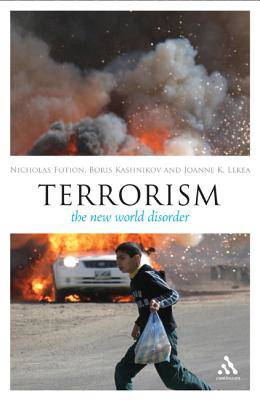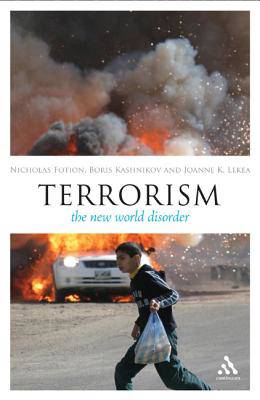
- Afhalen na 1 uur in een winkel met voorraad
- Gratis thuislevering in België vanaf € 30
- Ruim aanbod met 7 miljoen producten
- Afhalen na 1 uur in een winkel met voorraad
- Gratis thuislevering in België vanaf € 30
- Ruim aanbod met 7 miljoen producten
Zoeken
€ 322,45
+ 644 punten
Uitvoering
Omschrijving
Terrorism poses an undeniable threat to societies throughout the world today. Martyr terrorism, the fastest growing form of terrorist activity, and arguably the most effective, has become a regular occurrence. But how has terrorist activity evolved in the last 100 years, and what are the ethical costs of terrorism?
In this informative book, three philosophers, all experts on the ethics of conflict, examine the various definitions of terrorism and the nature of martyr terrorism. Through accounts of terrorist campaigns, from 19th century Russian terrorism, to the 20th century campaigns in Ireland, Israel and Greece, and contemporary campaigns in Chechnya, Afghanistan and Iraq, this fascinating book explores the ethical implications of terrorism from a philosophical perspective. Setting out the social, psychological and political causes of terrorism, the book interrogates the cases for and against terrorist activity in terms of just war theory. Articulate, provocative and stimulating, this timely book is an ideal introduction to an important contemporary social issue.Specificaties
Betrokkenen
- Auteur(s):
- Uitgeverij:
Inhoud
- Aantal bladzijden:
- 208
- Taal:
- Engels
- Reeks:
Eigenschappen
- Productcode (EAN):
- 9780826492579
- Verschijningsdatum:
- 30/01/2008
- Uitvoering:
- Hardcover
- Formaat:
- Ongenaaid / garenloos gebonden
- Afmetingen:
- 130 mm x 198 mm
- Gewicht:
- 317 g

Alleen bij Standaard Boekhandel
+ 644 punten op je klantenkaart van Standaard Boekhandel
Beoordelingen
We publiceren alleen reviews die voldoen aan de voorwaarden voor reviews. Bekijk onze voorwaarden voor reviews.







